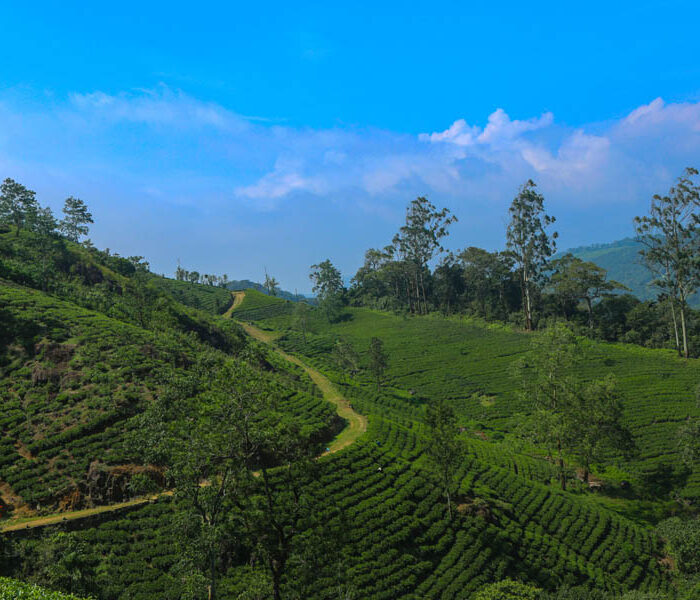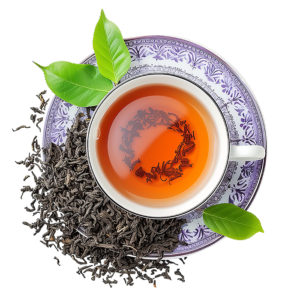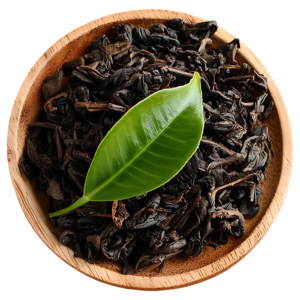Exploring the Pekoe Trail through the lense of Sri Lanka’s lush Tea country
The Pekoe Trail: A Journey Through Sri Lanka’s Tea Country
The Pekoe Trail is a 300-kilometer long hiking trail that winds through Sri Lanka’s central highlands, cutting across verdant tea estates, mist-covered mountains, and lush forests. Divided into 22 stages, the trail takes hikers from Hanthana in Kandy, the historic capital of the hill country, all the way through to Nuwara Eliya, Haputale, Ella, and beyond. Each segment of the trail provides spectacular vistas, weaving together stories of the tea industry, the people who have shaped it, a glimpse of village life along the trail and the pristine beauty of the highlands.
Named after the grading system used for tea leaves, the Pekoe Trail offers a rare opportunity to witness the life cycle of tea production firsthand. As hikers make their way through a myriad of terrains encompassing the lenth and breath of the trail, they can observe workers plucking the delicate leaves that will later be processed into the world famous Ceylon Tea. Tea from Sri Lanka is revered worldwide for its quality and flavor. Along the trail, visitors will find tea factories, plantations, and villages that are still very much part of Sri Lanka’s thriving tea culture.
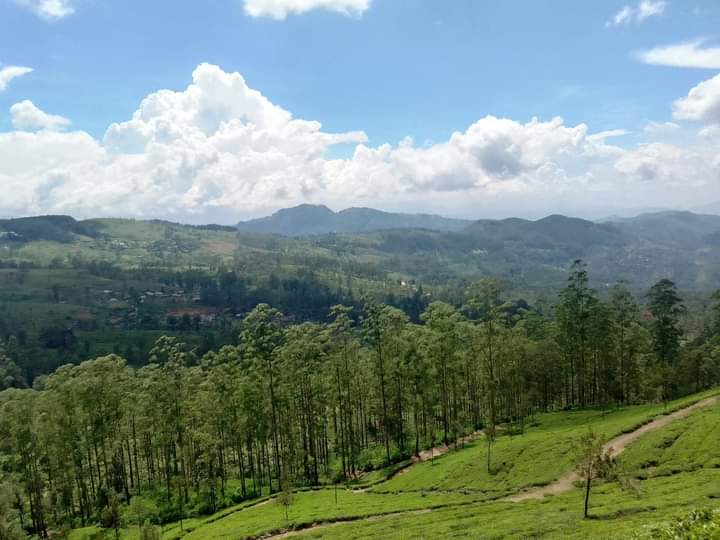
A Link to the Past: The Legacy of Ceylon Tea
The history of Sri Lanka’s tea industry dates back to 1867 when James Taylor, a Scottish planter, first introduced tea cultivation to the island. His early experiments in planting tea on the slopes of Loolecondera Estate, near Kandy, laid the foundation for what would become one of the world’s largest and most successful tea industries.
Over the next century, tea plantations spread across the highlands, transforming both the landscape and the economy of Sri Lanka. By the early 20th century, Ceylon Tea had gained international recognition, becoming synonymous with quality. The island’s high altitudes, cool temperatures, and abundant rainfall provided the perfect conditions for growing tea, ensuring Sri Lanka’s position as one of the world’s leading tea producers.
Today, the Pekoe Trail offers a glimpse into this history, allowing hikers and outdoor acitvity enthusiasts to walk the very paths that early planters and tea workers once tread. The colonial-era bungalows, tea factories, and estates that dot the landscape are reminders of the industry’s enduring legacy. Many of these sites have been preserved or converted into heritage hotels and tea museums, where visitors can learn more about the fascinating history of Ceylon Tea.
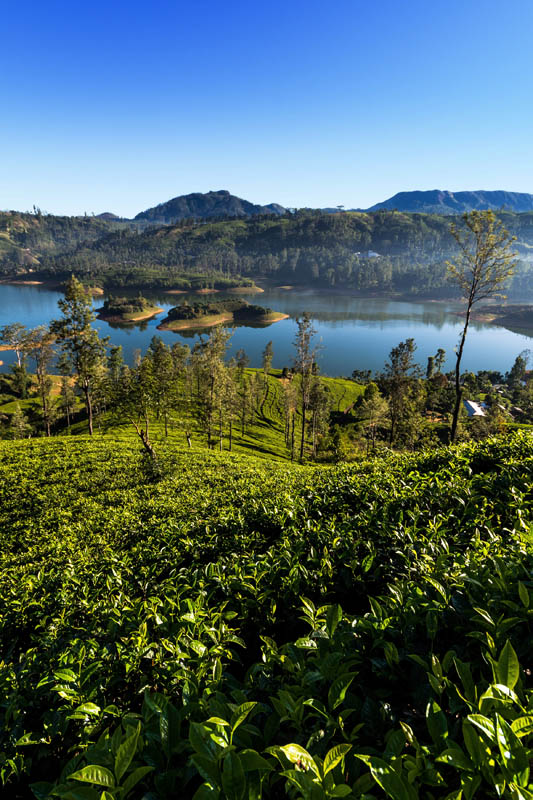
Immersing in Local Culture
Travelers on the trail can interact with local communities, visit tea worker villages, and participate in tea-tasting sessions at various estates. These experiences provide a deeper understanding of the social fabric of Sri Lanka’s tea industry, which continues to be a major employer in the country. The estates also offer insights into the sustainability efforts being made to ensure that tea production remains environmentally responsible and socially inclusive.
Sustainable Tourism and Conservation
Moreover, the trail supports local communities by encouraging eco-friendly accommodation and services along the route. Homestays, boutique hotels, and heritage properties provide travelers with authentic experiences while directly benefiting the local economy. The trail has become a model for responsible tourism, ensuring that both the environment and the people who live in the region can thrive. Note the link below for accomodation options along the trail https://www.thepekoetrailsrilanka.com/accommodation/

The Future of Tea Tourism
With continued investment in infrastructure and sustainable tourism practices, the Pekoe Trail has the potential to become one of Asia’s premier hiking destinations. As more travelers discover the trail, Sri Lanka’s reputation as the home of Ceylon Tea will continue to flourish, drawing visitors who are eager to explore the highlands, sip world-class tea, and walk in the footsteps of history.
The Pekoe Trail is much more than just a hiking route; it is a journey through the cultural, economic, and environmental fabric of Sri Lanka’s tea industry. As the island nation continues to evolve, this trail stands as a testament to the enduring legacy of Ceylon Tea and its vital role in shaping the history and identity of the country. Whether you are a seasoned trekker or a curious traveler, the Pekoe Trail offers an unforgettable experience that connects you with the heart and soul of Sri Lanka’s tea heritage.
